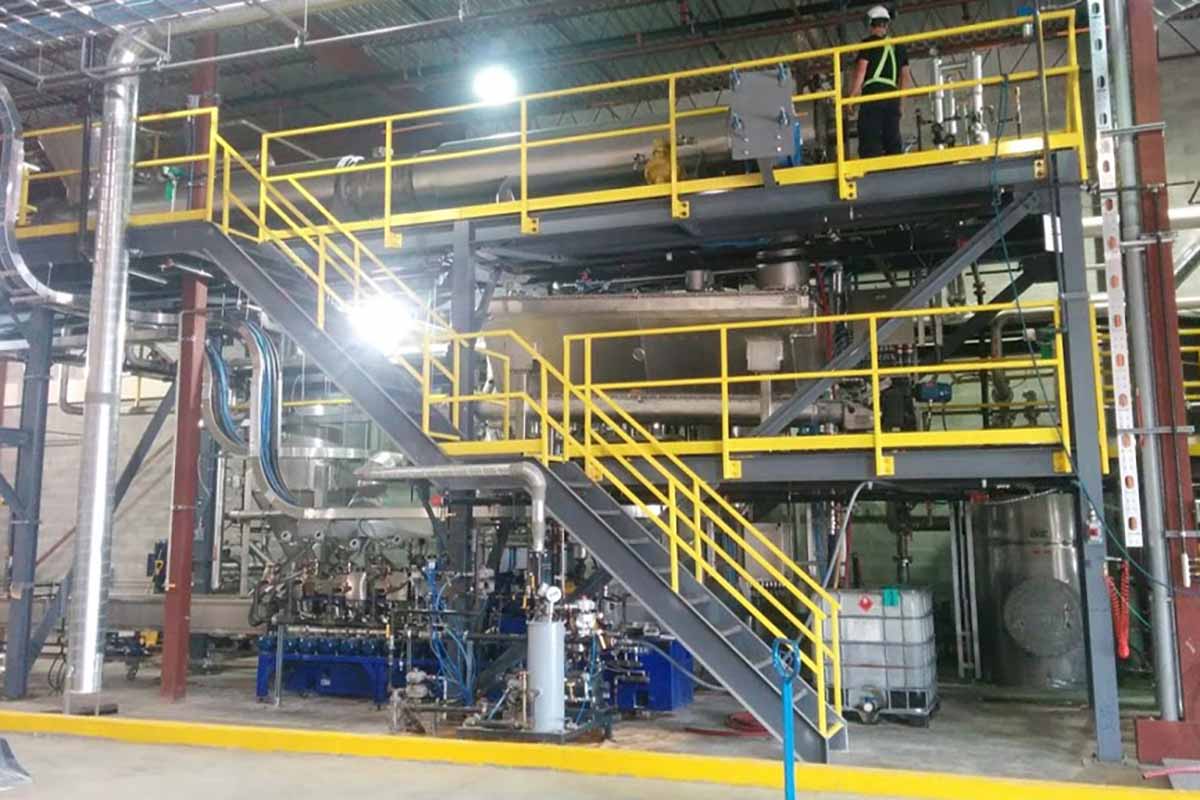
Polystyvert uses an essential oil to dissolve PS, which is then purified, separated from the oil and pelletized. | Courtesy of Polystyvert
Canadian polystyrene recycling technology company Polystyvert has signed a joint development agreement with global styrenics producer INEOS Styrolution.
On Feb. 2, Montreal-based Polystyvert announced the agreement, through which the two companies will work toward incorporating recycled resin produced by Polystyvert’s dissolution and purification process into INEOS Styrolution’s product offerings.
In an interview with Plastics Recycling Update, Polystyvert CEO and Founder Solenne Brouard Gaillot said the deal boosts her firm’s visibility and gives confidence to converters that are purchasing resin from INEOS Styrolution that they could make products out of Polystyvert’s recycled resin.
“Their clients can trust the quality of the product,” she said.
Polystyvert uses an essential oil to dissolve PS, which is then purified, separated from the oil and pelletized. Mechanical and chemical processes are used to remove contaminants such as colorants and other additives, other polymers, and flame retardants.
Brouard noted that, unlike pyrolysis, Polystyvert’s process does not sever the polymer chain to produce other chemical or fuel products. As a result, the process doesn’t use a lot of energy, and there’s no need to repolymerize.
Brouard said Intertek Health Environmental & Regulatory Services has provided third-party certification that the process can be used to produce food-contact plastics.
“The purification capacity of Polystyvert’s technology is unique,” Ricardo Cuetos, vice president of INEOS Styrolution Americas, Standard Products, stated in a Feb. 2 press release. “The high quality of the final recycled polystyrene resin is essential to achieving a truly circular economy in key markets like food service packaging.”
Brouard said Polystyvert has already conducted trials with INEOS Styrolution, and they decided the quality of the recycled resin was good enough to move to the next step, a joint development agreement (JDA). In Montreal, Polystyvert operates a plant, capable of processing 125 kilograms per hour, that’s used to showcase the technology.
Brouard said the JDA specifies the companies will work to develop the recycled resin for a variety of end products, including food and drink packaging, which is about half of the PS market.
“Our technology can reach this very ambitious quality,” she said.
The JDA is not an offtake agreement, which would commit INEOS Styrolution to purchasing a certain amount of recycled resin at an agreed-upon price. Brouard said that an offtake agreement could come as the next step.
Nearly three years ago, Polystyvert signed a development agreement with global petrochemicals company Total. Shortly thereafter, Polystyvert announced it had raised $11 million Canadian in financing.